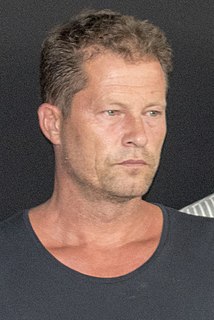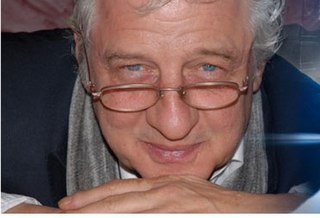A Quote by Tariq Ramadan
I don't buy anything which is Islamization of knowledge. I don't understand what it means in fact.
Related Quotes
Each member of society can have only a small fraction of the knowledge possessed by all, and...each is therefore ignorant of most of the facts on which the working of society rests...civilization rests on the fact that we all benefit from knowledge which we do not possess. And one of the ways in which civilization helps us to overcome that limitation on the extent of individual knowledge is by conquering intelligence, not by the acquisition of more knowledge, but by the utilization of knowledge which is and which remains widely dispersed among individuals.
My curiosity, alas, is not the kind that can be satisfied by objective knowledge. Plato said that opinion is worthless and that only knowledge counts, which is a neat formulation. ... But melancholy Danes from the northern mists understand that opinion is all there is. The great questions transcend fact, and discourse is a process of personality. Knowledge cannot respond to knowledge. And wisdom? Is it not opinion refined, opinion killed and resuscitated upward? Maybe Plato would have agreed with this.
Those who have power a) understand that the world is not always a just and fair place and accept that fact, b) understand the bases and strategies for acquiring power, and c) take actions consistent with their knowledge in a skillful way. Skill at anything requires practice, and power skills are no different.
Of true knowledge at any time, a good part is merely convenient, necessary indeed to the worker, but not to an understanding of his subject: One can judge a building without knowing where to buy the bricks; one can understand a violin sonata without knowing how to score for the instrument. The work may in fact be better understood without a knowledge of the details of its manufacture, of attention to these tends to distract from meaning and effect.
The fact that cultures are failing all over the world means that they don't know how to operate a society to make it work. Politicians have no real knowledge of technology; therefore, they are not capable of increasing food production, designing transportations systems that are safe… They have no knowledge in that area. Therefore it's senseless to talk to them about anything of significance.
A fact is a proposition of which the verification by an appeal to the primary sources of our knowledge or to experience is directand simple. A theory, on the other hand, if true, has all the characteristics of a fact except that its verification is possible only by indirect, remote, and difficult means.
I drifted into a career in academic philosophy because I couldn't see anything outside the academy that looked to be anything other than drudgery. But I wouldn't say I 'became a philosopher' until an early mid-life crisis forced me to confront the fact that, while 'philosophy' means 'love of wisdom', and 'wisdom' is the knowledge of how to live well, the analytic philosophy in which I had been trained seemed to have nothing to do with life.
Of course, you don't have to have a degree to be rich. You just have to have ideas. Maybe having a degree sets you back, for it stuffs you into tick-tock [the daily grind of work], and perhaps that stifles your creative mind. But the fact is that many millionaires have few educational qualifications of any kind at all. However, they still have knowledge. The difference is, they have knowledge they can sell, and others have the "common knowledge" of tick-tock, which isn't worth as much, if anything at all.






































